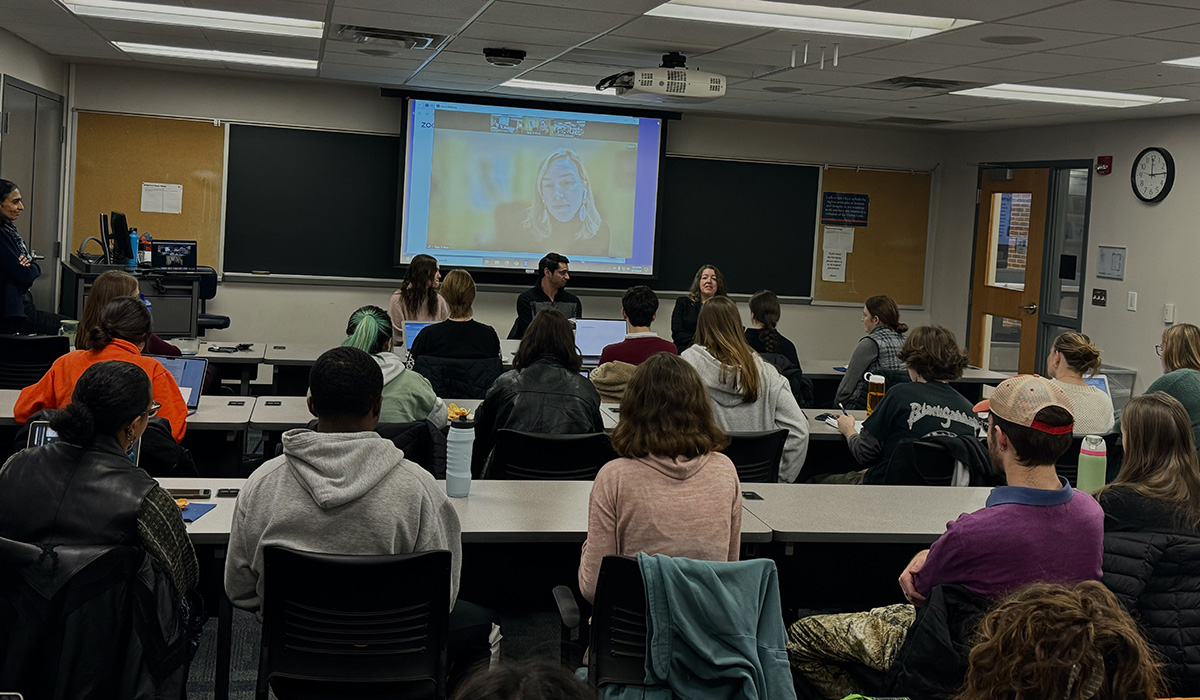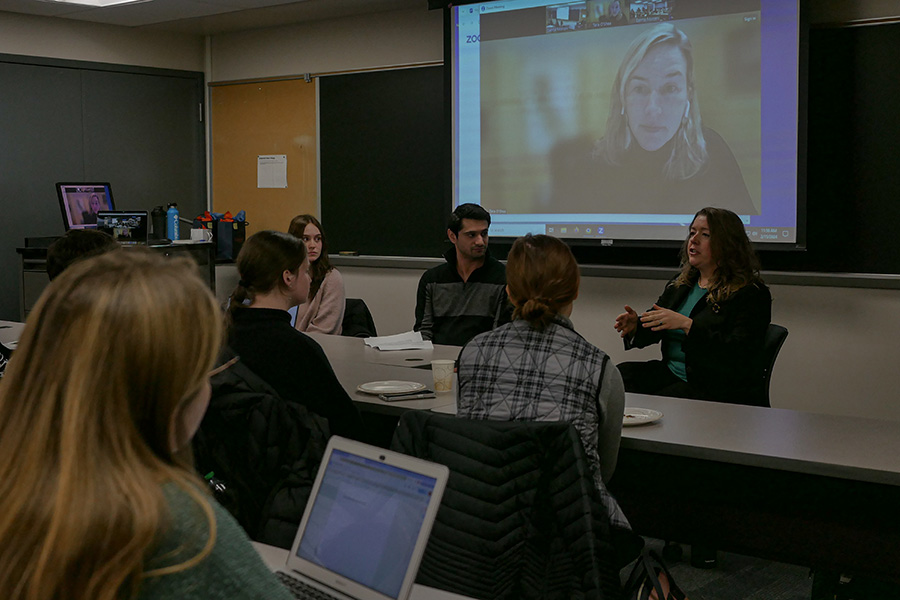
Through Gettysburg College’s rigorous education in the liberal arts and sciences, students are exposed to a breadth and depth of knowledge across many diverse subjects. At a recent Environmental Career Panel held by the Environmental Studies Department and the Center for Public Service (CPS), three Gettysburg alumni panelists reflected on how well their Gettysburg education prepared them for their careers in environmental work.
Tara O’Shea ’10
Tara O’Shea ’10 works as a senior director at Planet Labs, holding a position that blends climate technology, business, and policy.
O’Shea—along with the other panelists—emphasized that to be successful in the field, it is important to understand not only environmental science, but also policy, humanities, and a wide array of science disciplines.
“I am grateful all the time for the education I received at Gettysburg College. The biggest thing for me is how interdisciplinary my time and learning was at Gettysburg,” she said.
O’Shea is grateful for her cultivation of knowledge and the valuable skillset that she developed through her undergraduate studies.
“My Gettysburg education left me with a solid base in communication and writing,” she shared. O’Shea views these enduring skills as both unique to a Gettysburg College undergraduate experience and vital to her career success. She encouraged students to develop these skills now because they will often need them in the field when interacting with other professionals and the public.
Eric Harris ’15
Eric Harris ’15 also feels passionate about environmental work as an interdisciplinary field. As a planner at Clarke Caton Hintz, he works to incorporate affordable housing, urban redevelopment, and zoning into comprehensive planning efforts.
Not only does Harris hold a proactive role in researching land use development, but he considers other aspects during his planning as well, including transportation and mobility, lighting, and flooding.
“It is our specialty to be generalists. Through my work, I have the opportunity to learn about many areas that I might not have otherwise thought about” Harris said.
He attributes his integrative thinking and problem-solving skills to his time as a Gettysburg student. Through his classes, he was able to learn across multiple disciplines and gain tangible career skills, including how to utilize GIS (Geographic Information System), which he has found extremely relevant in his daily work.

Meghan Clark ’23
Meghan Clark ’23 was excited to share how Gettysburg equipped her with a set of enduring skills that would facilitate her transition to the workforce. Clark is an AmeriCorps VISTA member, working at both the Center for Public Service and with the conservation network South Mountain Partnership. This partnership meant that Clark was able to invite the organization’s director, Katie Hess, to be a panelist as well. Hess shared how she enjoys working with Clark and reiterated the importance of interdisciplinary understandings in the environmental field.
When offering advice to current students, Clark stressed the importance of communication, teamwork, and engaging across difference.
“Every class that I took with the environmental studies major had some sort of presentation element to it,” she said. Being able to effectively articulate her ideas in front of a classroom allowed her to build confidence, which she claims to be essential in the workforce.
Clark also underscored, “You cannot doubt yourself. All of us have had a bad group work experience at some point, but as frustrating as it can be, you’ll be working with people who do not have the same views as you. It is important to find common ground and get work done.”
O’Shea, Harris, and Clark all spoke highly of their transformative Gettysburg experience, as it allowed for each of them to develop a diverse skillset that they have applied to their careers.
With rapid growth in the environmental field, the panelists encouraged students to make the most of their Gettysburg education so that they can feel confident when entering the workforce upon graduation—and ultimately help to build a more sustainable future.
By Brooke Askin ’25
Photos by Sophia Gutierrez ’26 and Brooke Askin ’25
Posted: 04/03/24